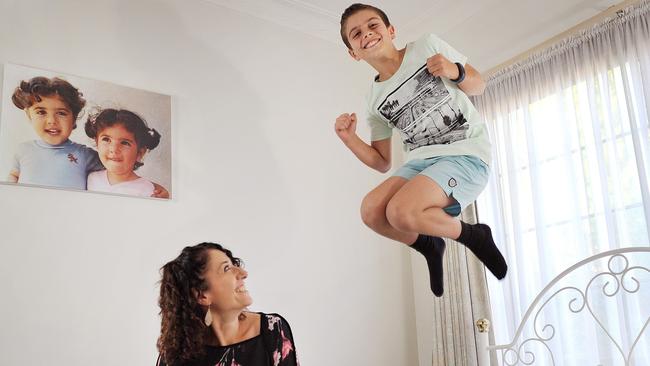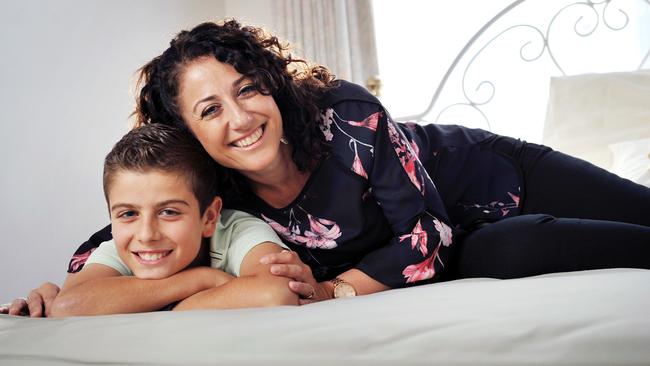New data shows snoring kids face higher medical risks
CHILDREN who snore are at greater danger of having reduced intellectual abilities, high blood pressure, and poor behaviours than sound sleepers.

VIC News
Don't miss out on the headlines from VIC News. Followed categories will be added to My News.
- Researcher making struggling students heard
- Why can everyone sleep except you?
- Australia in grip of sleep deprivation ‘epidemic’
CHILDREN who snore are at greater danger of having reduced intellectual abilities, high blood pressure, and poor behaviours than sound sleepers.
Worrying new research shows snoring is leading to long-term harms far beyond a broken sleep, with falls in oxygen levels impacting on children's cardiovascular and neurocognitive abilities.
Brain scans conducted on Melbourne children has shown injuries to the areas of their brain connected to blood pressure, mood and behaviour among those who snore.
The results are reinforced by the extended study of more than 260 children by a Monash University team, which found blood pressure levels more than 10 per cent higher, significantly higher reports of poor behaviour and reduced intellectual abilities among snorers.
SLEEP STUDY: TEENAGERS MORE SENSITIVE TO LIGHT
With up to 30 per cent of children snoring, study leader Professor Rosemary Horne said parents needed to realise it was not a just harmless process children will grow out of.
“This is effecting how they behave at school, how they learn at school, their blood pressure and also we now have evidence that there is changes to their brain,” Prof Horne said.
“It looks like most of the effects are acute, which means that if you treat the children and the hypoxia (brain injury) goes away their brain will get better.
“We have identified on MRI that there are quite significant changes to the brain of these young children who snore, and these are in areas that control blood pressure and are also affected by mood and behaviour.
“What we want to know now, is that if you treat these children whether the deficits we see in the brain can be repaired. But nobody knows that yet.”

Full results of the Monash study will be presented at the Associated Professional Sleep Societies meeting in Boston in June, which Prof Horne hopes will convince more parents to have their children referred for sleep studies to address their issues before permanent damage is done.
The most common treatment for problem snoring is the removal of tonsils and adenoids.
The study of 136 children 7-12 year-olds, and 128 3-5 year-olds, revealed their blood pressure had improved when reviewed three or four years after their treatment.
However, Prof Horne warned that although the children's’ behaviour had improved slightly, it still lagged behind classmates who had never snored.
Like many parents Natalie Ravi-Pinto had no idea of the impacts her then three-year-old son Julian’s snoring was having on his waking life.
After attending a sleep clinic as a precaution, Julian had his enlarged tonsils and adenoids removed when he was diagnosed with obstructive sleep apnoea, and he has reaped the benefits over the past seven years.
“It was an immediate improvement, it was unbelievable,” Ms Ravi-Pinto said.
“When they hold their breath they are not getting enough oxygen and their quality of sleep is bad, so during they are sleepier than normal and their behaviour might change.
“It’s great that we managed to get on top of it before he started school before it could have caused other issues.”


